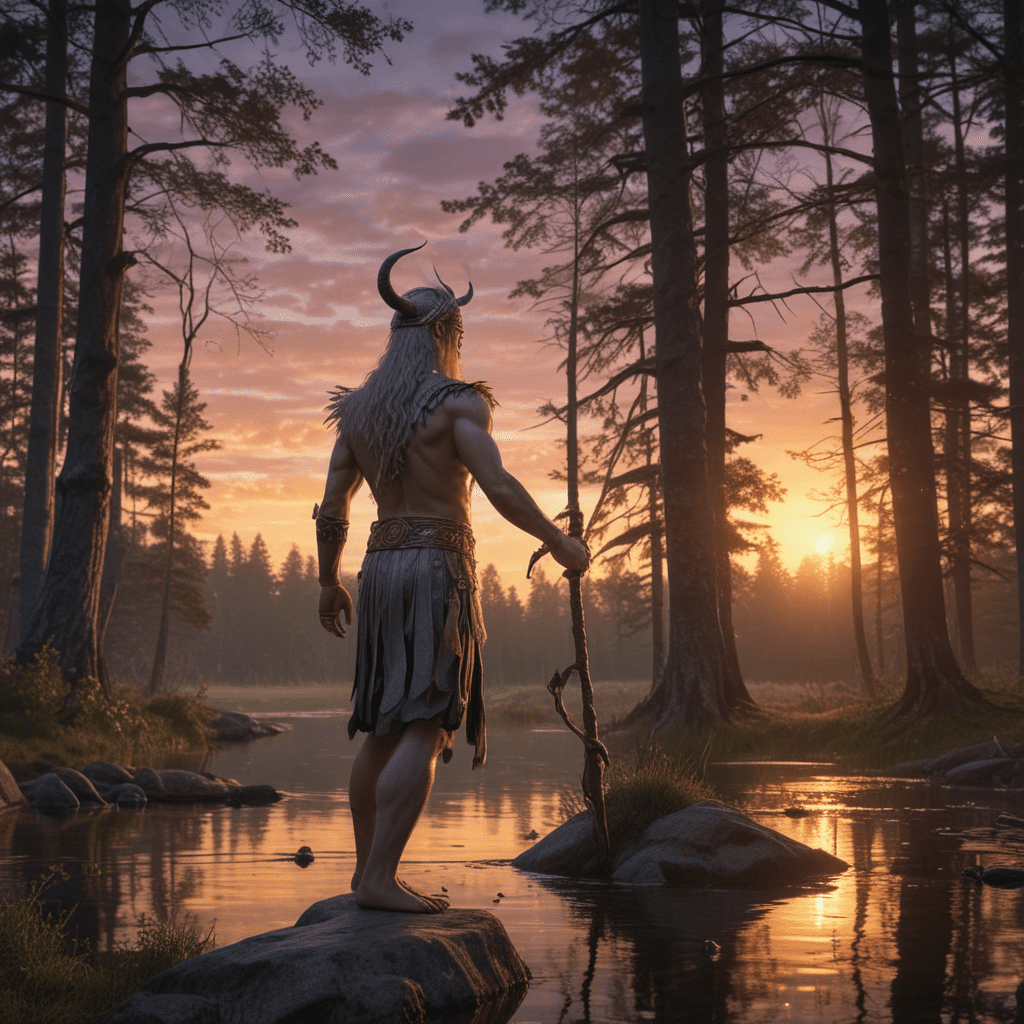The Mysterious Isle of the Dead: Myths of the Afterlife
Introduction to the Isle of the Dead
The Isle of the Dead, a name that conjures images of mystery and the unknown, is a significant location steeped in myth and legend. Located in various cultures’ lore, it often represents a threshold between life and the afterlife. This article explores the various dimensions of the Isle, its cultural implications, and its enduring legacy as a symbol of death and rebirth.
Historically, the Isle of the Dead has transcended geographical boundaries and has been associated with numerous myths about the afterlife. It serves as a metaphorical space where souls may journey after death, reflecting humanity’s deep-seated fears and fascinations regarding mortality.
Cultural Perspectives on Death and the Afterlife
Different cultures have developed unique perspectives on death and the afterlife, often viewing it through the lens of their beliefs, practices, and societal norms. Here are some examples:
- Ancient Egyptian Beliefs: The Egyptians believed in an elaborate afterlife, where the soul would be judged by the god Osiris. The Isle of the Dead could be viewed as a similar judgment space.
- Greek Mythology: The Greeks envisioned the afterlife as a realm ruled by Hades, where the dead would dwell in the underworld, possibly linking to the concept of a mystical Isle.
- Indigenous Traditions: Many indigenous cultures see death as a transition, with the Isle symbolizing a journey to the spirit world.
The Isle’s representation in these cultures highlights the universal themes of death, transition, and the hope for an afterlife, shaping various beliefs and practices surrounding mortality.
The Legend of the Isle of the Dead
The legend surrounding the Isle of the Dead is rich with folklore and historical accounts. Its origins can be traced back to ancient civilizations that utilized the isle as a burial site or sacred ground. The stories often revolve around significant figures who are said to inhabit or have visited the Isle.
Some key figures and stories associated with the Isle include:
- The Ferryman Charon: In Greek mythology, Charon transports souls across the river Styx to the Isle of the Dead.
- The Land of the Dead: Various cultures describe the Isle as a place where souls find rest or face judgment.
These narratives contribute to the mystique of the Isle, reinforcing its role as a central figure in the mythology of the afterlife.
Symbolism of the Isle in Literature and Art
The Isle of the Dead has inspired countless literary and artistic interpretations. In literature, poets and authors have depicted it as a place of reflection and contemplation of mortality. Notable works include:
- Alfred Lord Tennyson’s Poetry: Tennyson often explored themes of grief and loss, depicting the Isle metaphorically in his works.
- Edgar Allan Poe: Poe’s stories frequently delve into death and the afterlife, echoing the Isle’s themes of isolation and eternity.
In the realm of visual arts, the Isle of the Dead has been captured in various paintings and sculptures. Artists such as Arnold Böcklin created evocative images of the isle, portraying it as a serene yet haunting landscape, reflecting the human condition’s duality.
Archaeological Findings and Their Implications
Archaeological discoveries related to the Isle of the Dead provide insight into past civilizations and their beliefs about the afterlife. Excavations on islands thought to be connected to afterlife myths have revealed:
- Burial Sites: Many discoveries include ancient burial grounds, suggesting the isle was considered sacred.
- Artifacts: Items such as pottery, tools, and offerings indicate rituals performed to honor the dead and facilitate their journey to the afterlife.
These findings help connect physical evidence with mythological narratives, illuminating how the Isle of the Dead has shaped cultural practices and beliefs across time.
Psychological Interpretations of the Isle of the Dead
The Isle of the Dead serves not only as a physical or mythological space but also as a metaphor for universal human experiences, such as grief and mortality. Psychologically, the isle represents:
- Grief: It embodies the place where loved ones go after death, symbolizing loss and the process of mourning.
- Mortality: The isle serves as a reminder of our mortality, prompting reflection on life and the inevitability of death.
These interpretations reveal how myths about the Isle reflect collective human fears and hopes regarding death, serving as a coping mechanism for understanding our existence.
Modern-Day Beliefs and Practices Related to the Isle
In contemporary society, the Isle of the Dead continues to influence rituals and commemorations related to death. Modern practices inspired by the isle include:
- Memorial Services: Many cultures hold services that honor the deceased, drawing parallels to the isle as a resting place.
- Literature and Media: The Isle’s representation in movies and books continues to evoke fascination with the afterlife, showcasing its enduring relevance.
Popular culture often revisits the themes of the Isle, reinforcing its place in the collective consciousness as a symbol of death and remembrance.
Comparative Analysis of Afterlife Myths Worldwide
The Isle of the Dead serves as a compelling subject for comparative analysis of afterlife myths across cultures. Notable similarities and differences include:
- Judgment and Transition: Many cultures, like the Egyptians and Greeks, share the idea of judgment after death, paralleling the isle’s role.
- Nature of the Afterlife: While some cultures envision a peaceful afterlife, others depict it as a place of struggle, reflecting varying beliefs about existence beyond death.
This comparative analysis highlights the universal themes of death and rebirth, demonstrating how different cultures navigate the complexities of mortality.
The Isle of the Dead in Spiritual and Esoteric Traditions
The Isle also plays a significant role in various spiritual and esoteric traditions. These practices often involve:
- Mystical Journeys: Some traditions view the Isle as a destination for spiritual seekers, a place to connect with the divine.
- Rituals for Enlightenment: The Isle serves as a metaphorical space for personal transformation and enlightenment, emphasizing the journey of the soul.
In this context, the Isle of the Dead becomes a powerful symbol in the quest for understanding the deeper mysteries of life and death.
Conclusion: The Enduring Legacy of the Isle of the Dead
The Isle of the Dead continues to exert a profound influence on cultural narratives surrounding death and the afterlife. Its multifaceted symbolism provides a rich tapestry for exploring humanity’s fears, hopes, and beliefs about mortality. As society evolves, the Isle’s legacy persists, encouraging ongoing reflections on the meaning of life, death, and what lies beyond.
As we move forward, the engagement with myths of the afterlife, including the Isle of the Dead, will undoubtedly shape our understanding of existence and the enduring quest for meaning in the face of mortality.


